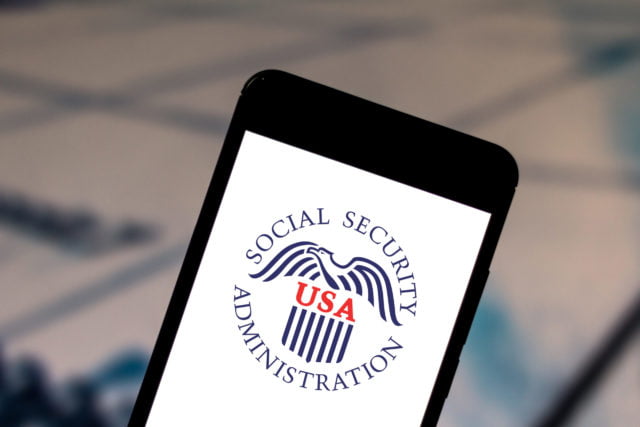
Most Boomers Don’t Rely Solely on SSA.gov
In 2000, Social Security launched a website allowing retirees to sign up for their benefits online without having to call or visit the agency. By 2013, about half of new retirees were using this feature to file their claims. However, progress stalled after that, despite continued growth in the number of baby boomers who were retiring.
A new survey of 2,600 people between ages 57 and 70 finds that even the people who sign up for their benefits online often wind up contacting Social Security for assistance. In the end, only 37 percent of all retirees claim completely online and never visit a field office or call the agency’s 800 number at some point during that process, suggests research by Jean-Pierre Aubry, a researcher at the Center for Retirement Research.
The boomers who are the most likely to complete the entire application online are college-educated people who are comfortable banking or filing their taxes, according to Aubry’s study. At the same time, older people of color are more hesitant to sign up for their benefits without calling or visiting their local Social Security office.
Given Social Security’s staff shortage and budget constraints, both the agency and retirees would benefit from fewer calls and visits. Fortunately, the share of retirees who apply for benefits exclusively online is likely to increase in the future. It is second nature for young adults – regardless of their race or whether they went to college – who grew up with cell phones in their hands to manage their finances online or buy things. When they start retiring, they will be more at ease than their parents with signing up for benefits without speaking with someone at the agency.
But there are things Social Security could do to increase online activity now. The agency already provides a personalized online statement that details eligibility and benefit levels for workers of all ages who create a my Social Security account. Based on the survey of older workers, Social Security could make it easier to get answers to basic inquiries such as whether an application, once submitted, is being processed.
Reducing obstacles to going online – whether enhancing user-friendly technology or simply raising awareness – might also substantially boost the applications filed exclusively on ssa.gov.
While that would be a big improvement, many people who want to speak with a Social Security staff person gave good reasons for doing so in the surveys. Some feel more comfortable speaking to someone directly about their major source of retirement income, while others don’t like to enter personal information online. And, of course, some older workers have complicated situations that require a field officer.
For something as important as Social Security, the researcher said, “a meaningful share of retirees will likely always choose to contact SSA in person or by phone.”
To read this study, authored by Jean-Pierre Aubry, see “How to Increase Usage of Social Security’s Online Tools.”
The research reported herein was derived in whole or in part from research activities performed pursuant to a grant from the U.S. Social Security Administration (SSA) funded as part of the Retirement and Disability Research Consortium. The opinions and conclusions expressed are solely those of the authors and do not represent the opinions or policy of SSA, any agency of the federal government, or Boston College. Neither the United States Government nor any agency thereof, nor any of their employees, make any warranty, express or implied, or assumes any legal liability or responsibility for the accuracy, completeness, or usefulness of the contents of this report. Reference herein to any specific commercial product, process or service by trade name, trademark, manufacturer, or otherwise does not necessarily constitute or imply endorsement, recommendation or favoring by the United States Government or any agency thereof.
Comments are closed.







Your articles are timely and very informative.
I have watched the “My Social Security” site (“MSS”) grow in its capabilities over the past year or two and I’m optimistic about its role for the future. It now handles “spouses benefit” expectations for both parties (the insured and their spouse) under both log-ins.
A concern I have for new users is that MSS no longer permits new users to set up with a username and password. Instead, they must use login.gov or a private entity “ID.me”. I was never happy using ID.me because it seemed to fill my usage with lots of extraneous commercial clutter for its other business lines (trying to sell me stuff). I recently cut through that by use of recently available settings. But I suspect that many older people may have a hard time with ID.me.
As a counterpoint to that, we recently set my wife up with ID.me and it was relatively painless and simple (unlike how my dealings with the SSA on the phone often go).
I have a login.gov account for other needs but my understanding was that if I had set up MSS with login.gov that my access using my username and password would no longer be available, a choice I didn’t want to take at the time. But I would be happy to switch in the future.
In sum, new users should be happy with either ID.me or login.gov. And the My Social Security site has grown a lot and provides a lot of utility for users, whether still working or retired.
Probably a generational thing that will slowly change as the computer generation ages.